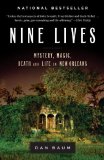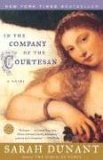Summary | Excerpt | Reading Guide | Reviews | Beyond the book | Read-Alikes | Genres & Themes | Author Bio

The author of Midnight in the Garden of Good and Evil returns after more than a decade to give us an intimate look at the "magic, mystery, and decadence" of the city of Venice and its inhabitants.
It was seven years ago that Midnight in the
Garden of Good and Evil achieved a record-breaking four-year run
on the New York Times bestseller
list. John Berendt's inimitable brand of nonfiction brought the dark
mystique of Savannah so startlingly to life for millions of people that
tourism to Savannah increased by 46 percent. It is Berendt and only
Berendt who can capture Venice—a city of masks, a city of riddles, where
the narrow, meandering passageways form a giant maze, confounding all who
have not grown up wandering into its depths.
Venice, a city steeped in a
thousand years of history, art and architecture, teeters in precarious
balance between endurance and decay. Its architectural treasures
crumble—foundations shift, marble ornaments fall—even as efforts to
preserve them are underway.
The City of Falling Angels opens on the evening of January 29, 1996, when a dramatic
fire destroys the historic Fenice opera house. The loss of the Fenice,
where five of Verdi's operas premiered, is a catastrophe for Venetians.
Arriving in Venice three days after the fire, Berendt becomes a kind of
detective—inquiring into the nature of life in this remarkable
museum-city—while gradually revealing the truth about the fire.
In the course of his investigations, Berendt introduces us to a rich
cast of characters: a prominent Venetian poet whose shocking "suicide"
prompts his skeptical friends to pursue a murder suspect on their own; the
first family of American expatriates that loses possession of the family
palace after four generations of ownership; an organization of
high-society, partygoing Americans who raise money to preserve the art and
architecture of Venice, while quarreling in public among themselves,
questioning one another's motives and drawing startled Venetians into the
fray; a contemporary Venetian surrealist painter and outrageous
provocateur; the master glassblower of Venice; and numerous others-stool
pigeons, scapegoats, hustlers, sleepwalkers, believers in Martians, the
Plant Man, the Rat Man, and Henry James.
Berendt tells a tale full of atmosphere and surprise as the stories
build, one after the other, ultimately coming together to reveal a world
as finely drawn as a still-life painting. The fire and its aftermath serve
as a leitmotif that runs throughout, adding the elements of chaos,
corruption, and crime and contributing to the ever-mounting suspense of
this brilliant book.
There are countless books written about Venice but, arguably, none written by an author as familiar to readers as John Berendt, whose first book, Midnight in the Garden of Good and Evil (1994), stayed on the New York Times bestseller list for four years and, thanks in part to the 1997 movie of the same name, achieved a fair degree of awareness outside of the USA as well.
Every author hopes that his/her book will make it on to the bestseller lists, but few, even in their wildest imaginations would dare to consider a four year run for their first book. However, such success is something of a double-edged sword as it sets very high expectations for what follows. Berendt has taken 11 years to publish his second book, and many were watching and waiting to see if it could live up to the success of the first.
On the whole, the verdict is yes, it does!..continued
Full Review
 (540 words)
(540 words)
(Reviewed by BookBrowse Review Team).
Venice was founded in the River Po estuary by refugees escaping Attila the Hun in the 5th century. The city is built on more than 100 islands forming the archipelago of the Venetian Lagoon. All transport within the city of Venice is either on foot or by water. Around the 8th century Venice became a city state, like Genoa and Pisa; and with its strategic position at the head of the Adriatic its naval and commercial power were almost invulnerable.
In the late 12th century, the Republic of Venice seized areas of the mainland surrounding Venice - its possessions (known as 'Terrafirma') provided a buffer against belligerent neighbors and guaranteed essential trade routes. It also controlled most of the islands in the Aegean including Cyprus and ...

If you liked The City of Falling Angels, try these:

Nine Lives: Mystery, Magic, Death, and Life in New Orleans
by Dan Baum
Published 2010
Nines Lives is a multivoiced biography of a dazzling, surreal, and imperiled city, told through the lives of nine unforgettable characters and bracketed by two epic storms.

In The Company of the Courtesan
by Sarah Dunant
Published 2007
A story of desire and deception, sin and religion, loyalty and friendship that paints a portrait of one of the world's greatest cities, Renaissance Venice, at its most potent moment in history.